The Role of Peer Mentoring in ABA Therapy for Social Skills Development
Exploring the Transformative Power of Peer Mentoring in Autism Support
Introduction to Peer Mentoring in ABA Therapy
Peer mentoring has emerged as a transformative tool in improving the social skills of individuals with autism, particularly within the framework of Applied Behavior Analysis (ABA) therapy. By engaging neurotypical peers in the developmental journey of autistic individuals, peer mentoring encourages enriched communication, bolstered confidence, and meaningful social engagement. This article explores the multifaceted role of peer mentoring in autism interventions, analyzing methodologies, strategies, and the psychosocial outcomes associated with these impactful relationships.
Understanding Peer-Mediated Instruction and Intervention (PMII)
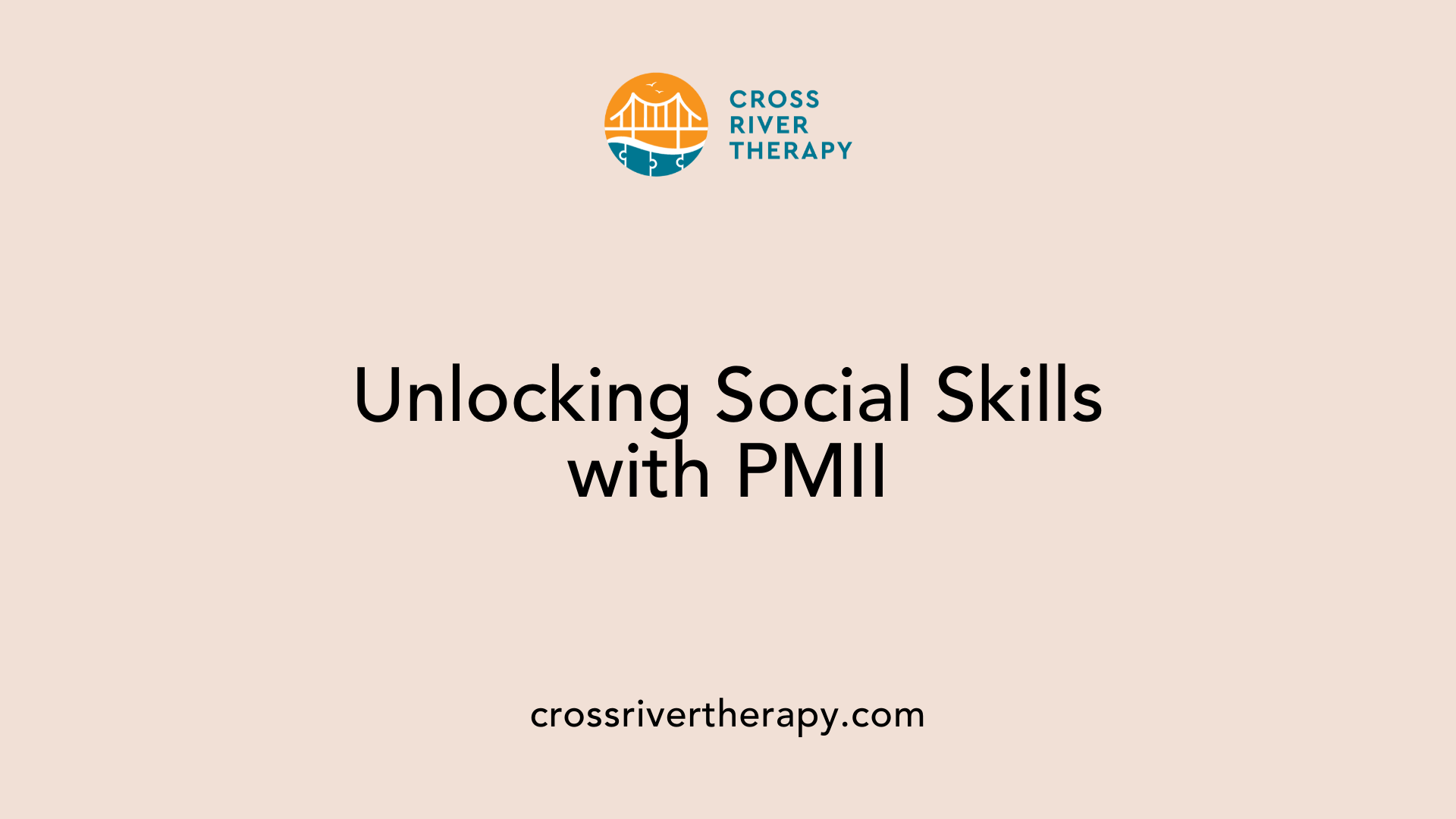
Overview of PMII
Peer-Mediated Instruction and Intervention (PMII) is an evidence-based practice specifically designed to enhance the social learning of students on the autism spectrum. This approach leverages the interactions between typically developing peers and students with autism to foster social skills in a natural environment. Adolescents with autism spectrum disorder (ASD) often struggle with social engagement, making peer connections vital for building communication skills and overall confidence.
Benefits for Students with ASD
The incorporation of PMII in educational settings brings several benefits for students with ASD:
- Role Models: Peers serve as positive role models, demonstrating appropriate social behaviors.
- Structured Interaction: Programs like Peer Buddy Systems and Integrated Play Groups create structured environments for social engagement, allowing children with ASD to practice and refine their skills.
- Enhanced Social Engagement: Research indicates that students with ASD paired with peer mentors experience improved social interactions, communication skills, and overall relationship satisfaction.
- Mutual Growth: Not only do students with autism benefit from this peer support, but their typically developing classmates also gain social understanding and empathy.
Inclusive Classroom Environment
Implementing PMII promotes inclusivity in the classroom. Here’s how:
- Shared Experiences: Peers develop a better understanding of autism through interaction, which dispels myths and fosters a supportive atmosphere.
- Enhanced Communication: All students involved learn to engage meaningfully, leading to improved socio-emotional dynamics in the classroom.
- Acceptance and Advocacy: An inclusive environment encourages acceptance and advocacy for students with ASD, cultivating a stronger community.
In summary, PMII not only aids students with autism in their social development but also supports their peers in learning valuable interpersonal skills, promoting an enriching educational experience for all involved.
The PEERS Program: A Structured Approach in ABA Therapy
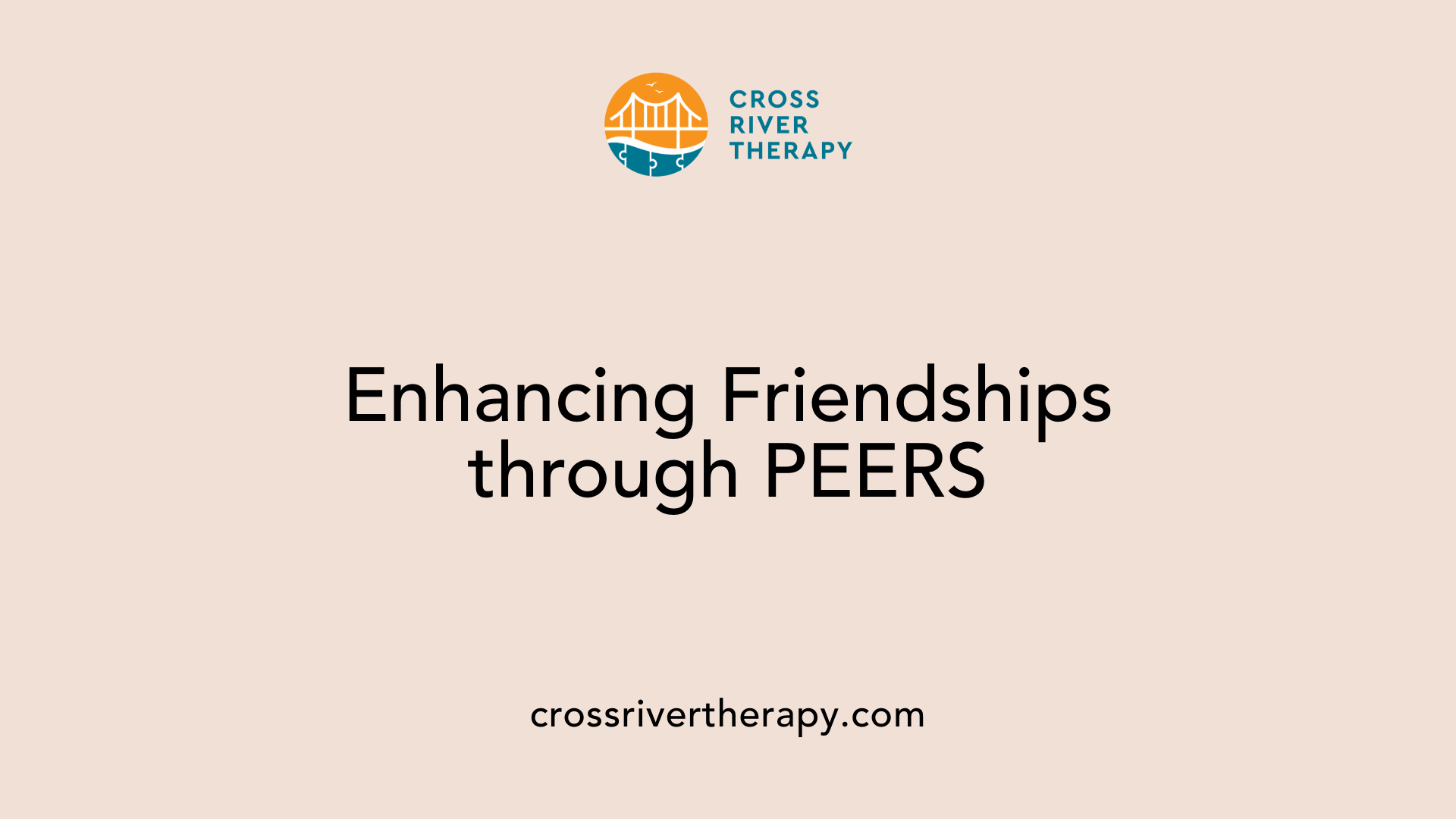
What is PEERS in ABA therapy?
PEERS, or the Program for the Education and Enrichment of Relational Skills, is an evidence-based social skills intervention tailored for motivated adolescents in middle and high school seeking to enhance their friendship-making abilities. Spanning 16 weeks, this program features 90-minute sessions held weekly. A unique aspect of PEERS is its dual structure, where teens engage in social skills training while their parents simultaneously participate in a separate but concurrent support group.
Program structure and objectives
Throughout the program, teens delve into essential conversation techniques, including:
- Initiating and concluding conversations: Learning how to start conversations and gracefully exit them.
- Effective communication: Practicing how to express thoughts and feelings clearly.
- Organizing social activities: Understanding what it takes to plan and carry out social events.
- Navigating social challenges: Developing skills to handle teasing and bullying effectively.
This structured approach allows teens to not only learn socially relevant skills but also practice them in a supportive environment. The curriculum is designed to be engaging and practical, ensuring that participants can apply what they learn to real-world situations.
Role of parents
Parents play a pivotal role in the success of the PEERS program. By attending separate sessions, they acquire strategies to support their child's social interactions outside of the program setting. This involvement enhances the reinforcement of learned skills and ensures that both the peer and parental contributions align, creating a cohesive support system.
Impact on social skills
Research shows that participation in the PEERS program leads to improved social skills among teens with autism spectrum disorder (ASD). As students learn to navigate social landscapes more proficiently, they often exhibit increased confidence and autonomy in their interactions. This development is crucial, as enhanced social skills contribute to stronger relationships and increased social engagement, both of which are vital for their overall well-being.
The Impact of Mentorship on Social Engagement in Autism
How does mentorship impact social engagement among adolescents with autism spectrum disorders?
Mentorship plays a significant role in enhancing social engagement among adolescents on the autism spectrum. Research indicates that mentorship can effectively moderate the relationship between autism spectrum disorder (ASD) status and social engagement levels. Specifically, adolescents with ASD who benefit from at least one trusted adult mentor exhibit greater social interaction opportunities, which can facilitate their integration into social contexts.
Role of adult mentors
Adult mentors serve as crucial facilitators for social skills development, offering guidance, support, and structure to mentoring relationships. Their involvement is linked to increased confidence and improved social functioning in adolescents with ASD. By establishing trust and setting realistic goals, mentors influence younger mentees' ability to navigate social scenarios more effectively.
Mentorship benefits for adolescents with ASD
The benefits of having a mentor extend beyond mere social engagement. Mentored adolescents often report improved communication skills, heightened self-confidence, and the ability to form supportive relationships. This transformation is evident as they demonstrate more effective social interactions compared to their unmentored counterparts.
Comparison with non-mentored peers
In contrast to those without mentorship, adolescents with ASD engaged in peer mentoring programs have shown a greater capacity for social involvement. They not only participate more actively in social settings but also emulate the social behaviors and skills observed from their mentors, leading to improved overall socio-emotional development.
The presence of mentorship is not just a supportive factor; it is an essential component in fostering enhanced social engagement for adolescents with autism.
Benefits of Peer Mentoring for Autism Spectrum Disorder (ASD)
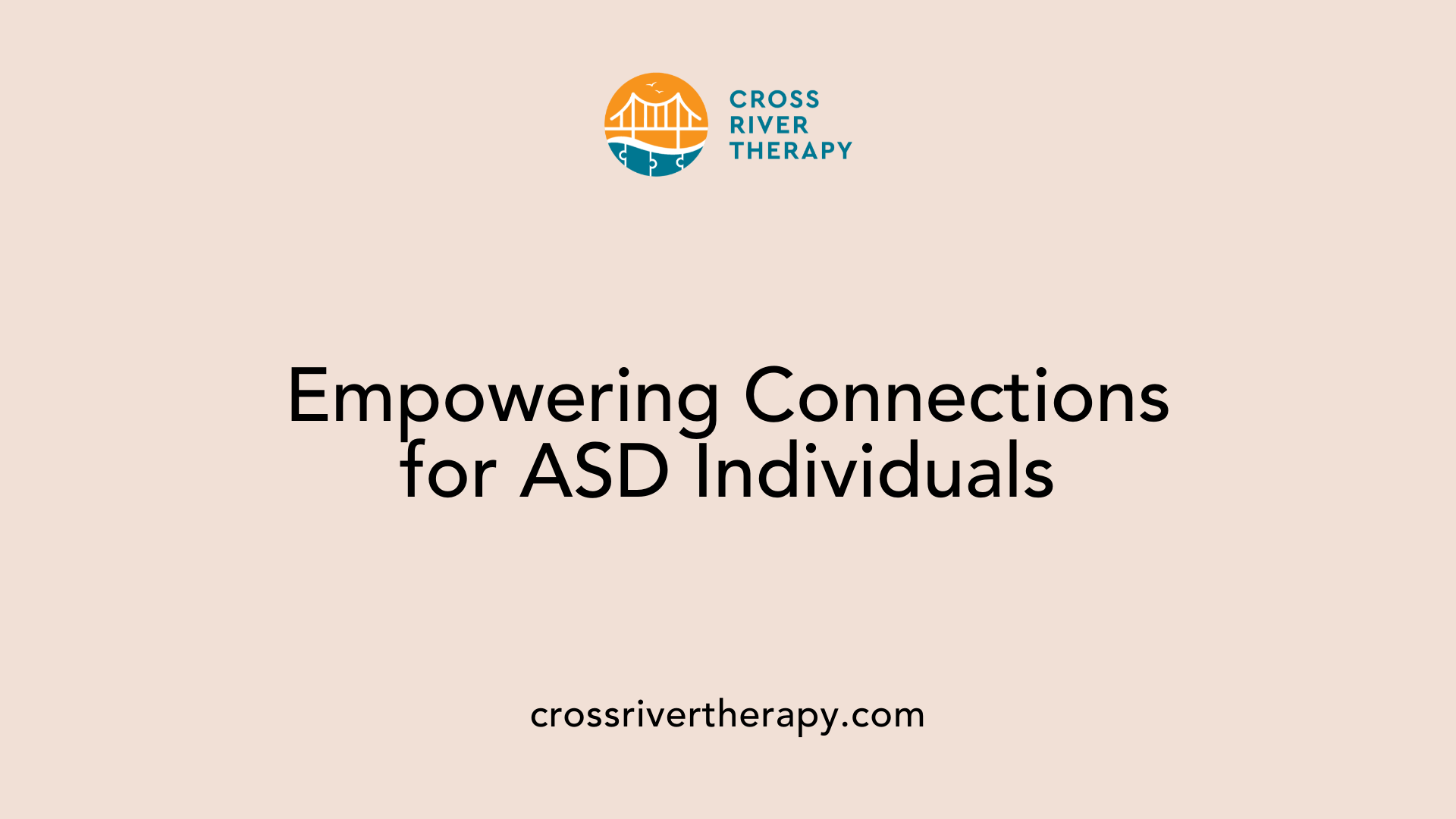
Social Interaction Improvement
Peer mentoring plays a vital role in boosting social interaction for individuals with autism. By connecting those on the autism spectrum with neurotypical peers, it opens doors for enhanced communication and social skills development. Opportunities for structured socialization not only encourage individuals with ASD to engage more with their surroundings but also help them navigate real-world social dynamics through relatable experiences with their peers.
Self-Confidence Enhancement
Engaging in peer mentorship helps adolescents with autism build self-confidence. Through consistent interaction and supportive feedback from mentors, mentees often learn to trust their abilities in social settings. This newfound confidence translates into more willingness to participate in social engagements, which is essential for their overall psychosocial development.
Supportive Relationship Development
Building supportive relationships is another significant benefit of peer mentoring. The bond formed between mentors and mentees fosters a nurturing environment where individuals with ASD can share experiences and challenges. This relationship not only provides emotional assistance but also encourages mentees to establish connections with others, reducing feelings of isolation and promoting a sense of belonging within the community.
| Benefit | Details | Importance |
|---|---|---|
| Social Interaction | Enhanced opportunities for social engagement through shared activities | Helps in navigating real-world social dynamics |
| Self-Confidence | Increased self-esteem from positive mentor feedback | Facilitates active participation in social settings |
| Supportive Relationships | Development of trusting relationships leading to emotional support | Reduces isolation and promotes community inclusion |
Strategies for Effective Peer Mentoring in ABA Therapy
Role-playing Exercises
Role-playing exercises are a highly effective strategy within peer mentoring programs, especially in applied behavior analysis (ABA) therapy.
This technique offers individuals with autism a controlled environment to practice social interactions.
Mentees can simulate various social scenarios, such as greeting peers or initiating conversations, allowing them to gain confidence and incorporate feedback from mentors in real-time.
Visual Aids and Positive Reinforcement
Incorporating visual aids into mentorship sessions can significantly enhance understanding and retention of social concepts.
Visual supports, like picture cards or diagrams, help mentees grasp abstract ideas, making it easier for them to engage in social situations.
Combining these aids with positive reinforcement from peer mentors encourages desired behaviors, thus fostering a more supportive learning experience.
Setting Specific Goals
Establishing clear, achievable goals tailored to each mentee’s needs is essential in peer mentoring programs.
Specific goals could range from improving eye contact during conversations to participating in group activities.
Regular assessments of these goals and progress tracking not only empower mentees but also strengthen the mentor-mentee relationship, leading to more successful outcomes in skill development.
Research Evidence: Efficacy of Peer Mentoring
Post-intervention outcomes
Research has shown that peer mentoring programs can lead to significant improvements in the social skills of individuals with autism spectrum disorder (ASD). Specifically, these programs have been linked to better post-intervention social outcomes such as enhanced communication abilities, increased self-confidence, and the ability to engage in meaningful relationships. Programs not only impact mentees but also help mentors develop their own social skills, creating a mutually beneficial environment.
Generalizability compared to traditional training
Traditional social skills training often falls short in real-life applications for individuals with ASD. In contrast, peer mentoring integrates real-life experiences, making the learned skills more applicable and easier to transfer to everyday interactions. Through shared experiences and relatable support, peer mentoring addresses this gap, promoting a greater understanding and application of social skills that are critical for life success.
Emphasis on relationship quality
The quality of the mentoring relationship emerges as a pivotal factor influencing the effectiveness of peer mentoring programs. High relationship quality correlates with better social skills outcomes, especially for younger mentees. Trust, confidentiality, and relatable guidance contribute to a positive mentor-mentee dynamic, ultimately enhancing the targeted social skills development. Therefore, structure, training, and ongoing support to both mentors and mentees can lead to thriving mentoring relationships and improved social engagement.
Challenges and Considerations in Peer Mentoring Programs
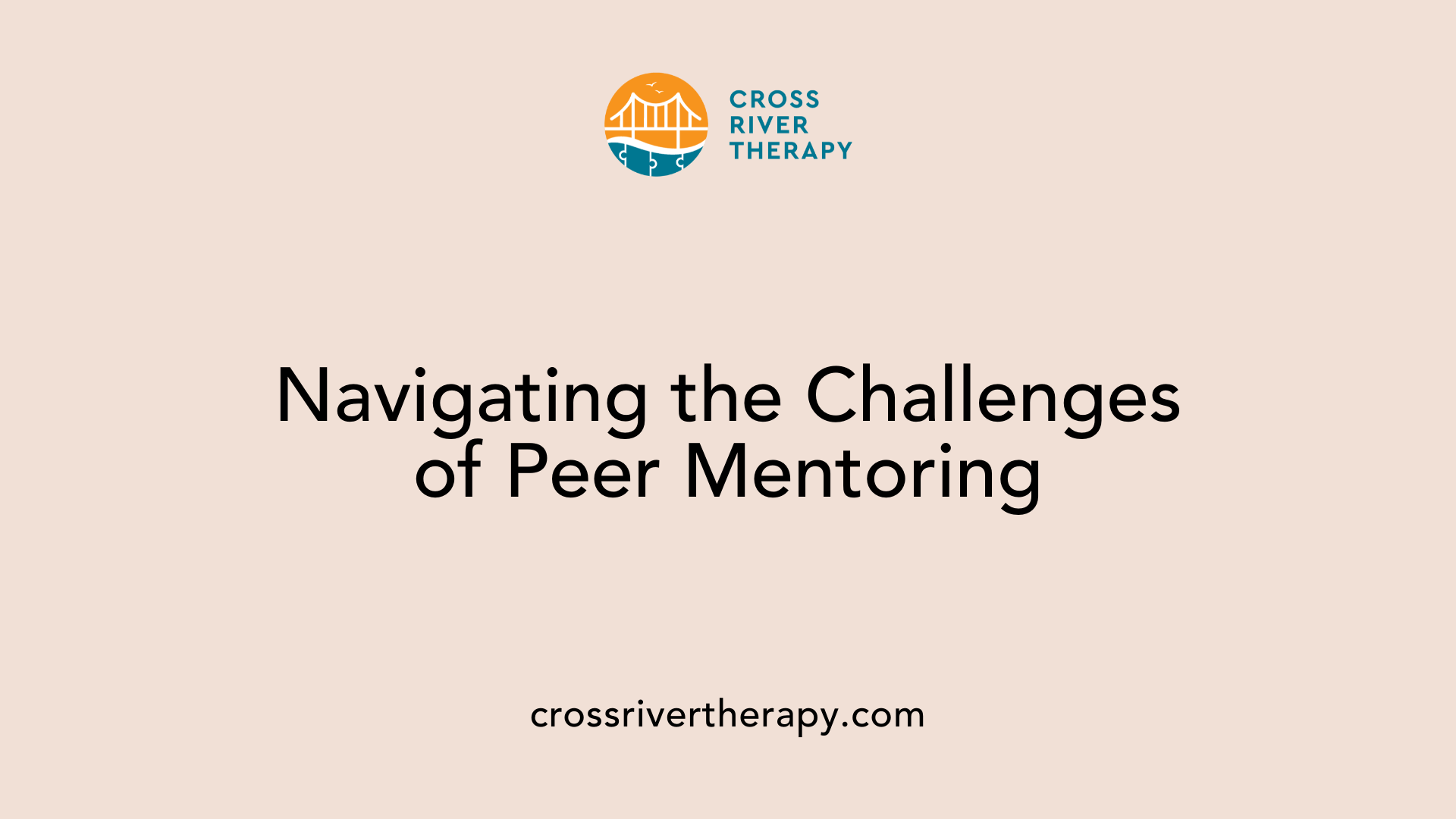
Training and Engagement
Peer mentoring programs for individuals on the autism spectrum require mentors to be well-trained. This training is essential to ensure mentors can effectively support their mentees through social challenges. Engagement is another critical factor; mentors must remain involved over time to foster strong relationships and achieve desired outcomes.
Program Sustainability
Sustaining engagement in peer mentoring programs poses a challenge. Programs must develop strategies to keep mentors and mentees motivated. This includes ongoing training, fun activities, and regular feedback sessions for both mentors and participants to evaluate progress and share experiences.
Safety and Supervision
Ensuring safety through proper supervision is imperative in mentoring relationships. Clear guidelines should be established to protect both mentees and mentors. Supervision ensures that interactions are safe and positive, helping to build trust and security within the mentoring dynamic.
| Challenge | Description | Importance |
|---|---|---|
| Training and Engagement | Essential for effective mentoring relationships | Ensures mentors can adapt to mentees’ needs |
| Program Sustainability | Need for ongoing motivation and interest from participants | Keeps the program vibrant and effective |
| Safety and Supervision | Establishment of clear interaction guidelines | Builds a secure environment for personal growth |
Practical Implementation of Peer Mentoring in Therapeutic Settings
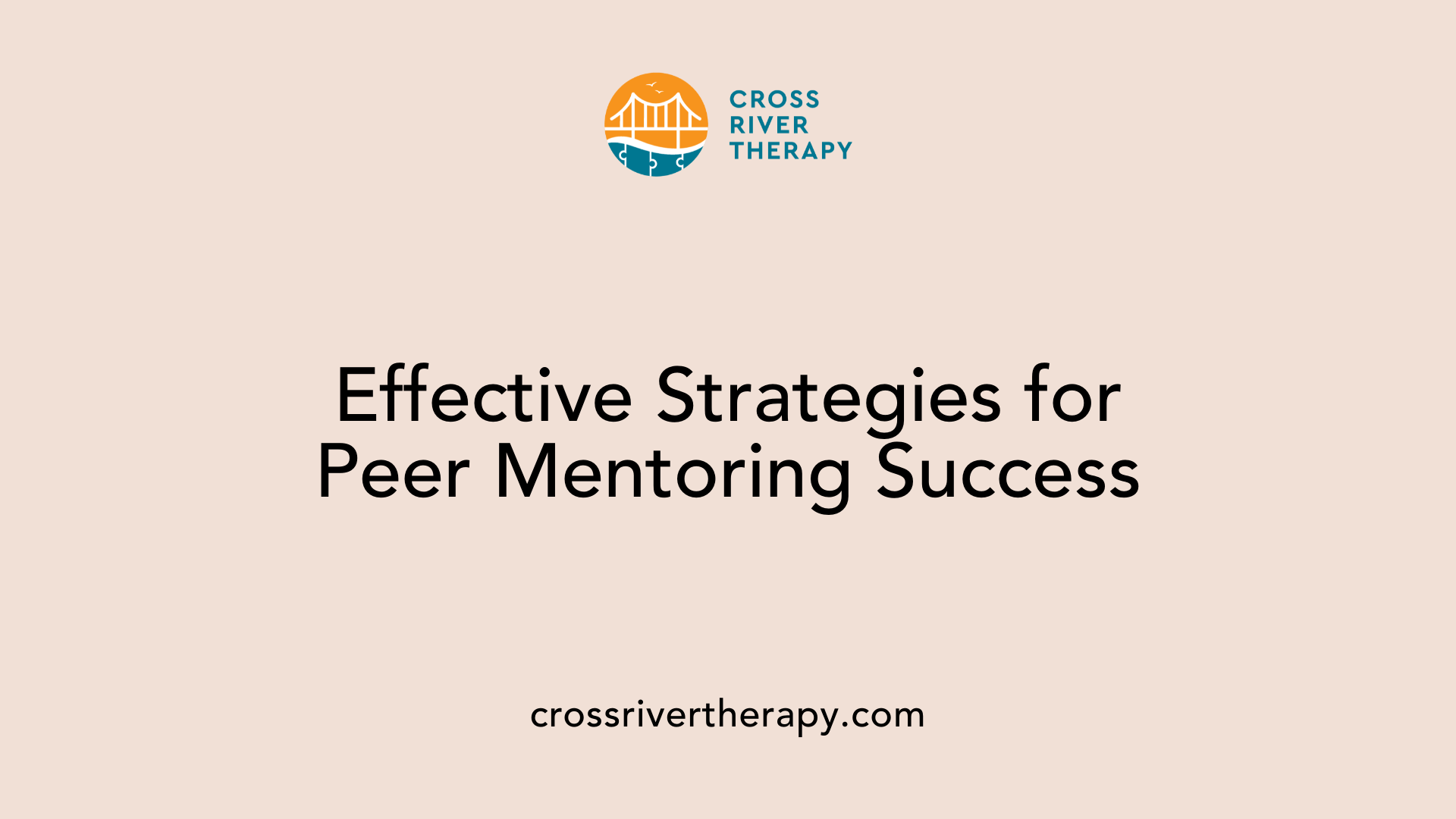
Steps for Setting Up Programs
To successfully implement peer mentoring for individuals with autism, several essential steps should be taken:
- Mentor Recruitment: Carefully select mentors with relevant experiences and social skills.
- Training: Provide ongoing training for mentors on effective communication and support strategies.
- Safety Guidelines: Establish clear safety protocols to ensure a secure environment.
Tailored Mentor-Mentee Pairing
It's crucial to match mentors and mentees based on shared interests and communication styles. This personalized approach encourages engagement and relatability, enhancing the overall effectiveness of the mentoring relationship.
Feedback Systems
Ongoing evaluation is key to program effectiveness. Implement a feedback system that gathers insights from both mentors and mentees. Regular assessments help identify areas of improvement, ensuring that the program meets the evolving needs of participants.
Concluding Thoughts on Peer Mentoring in ABA Therapy
Peer mentoring stands out as a promising approach to enhancing social skills development for individuals with autism. By aligning theories of social cognitive learning with practical, structured support, these programs not only improve the lives and abilities of those on the autism spectrum but also foster empathy and understanding among their neurotypical peers. As research continues to underscore the benefits of such interventions, educators and therapists are encouraged to integrate peer mentoring into their therapeutic practices, ensuring an inclusive and supportive environment for autism social skills development.
References
- Peer Mentoring for Autism: Boosting Social Skills - Jade ABA Therapy
- The role of mentorship on social engagement among adolescents ...
- An Examination of the Role of Mentees' Social Skills and ...
- Partners in Social Learning: Peer mentoring by and for students with ...
- [PDF] Peer Mentoring Improving Psychosocial Outcomes for Individuals ...
- A Structured Peer-Mentoring Method for Physical Activity Behavior ...
- Understanding peer support and mentoring



